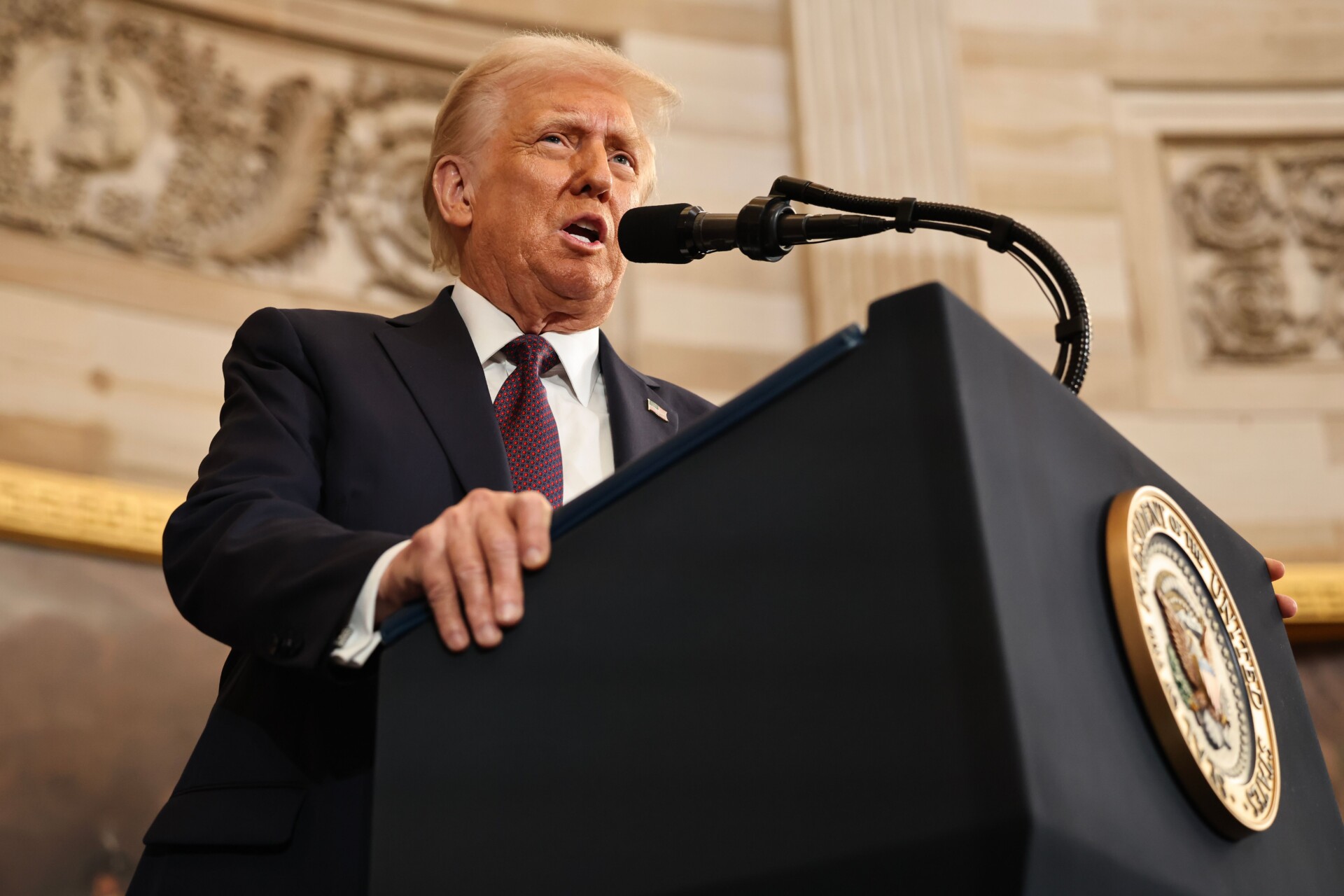BTC
102,995.26
+0.03%
ETH
3,244.37
+0.81%
XRP
3.11
-2.30%
USDT
1.00
+0.07%
SOL
249.99
-4.95%
BNB
685.05
-1.21%
DOGE
0.35110412
-1.37%
USDC
0.99998817
-0.00%
ADA
0.98250867
-0.21%
TRX
0.24990957
-2.04%
LINK
25.25
+0.77%
AVAX
35.19
-3.67%
WBTC
103,011.59
+0.08%
XLM
0.42775945
-0.31%
SUI
4.30
-4.11%
TON
5.08
-3.76%
HBAR
0.32083392
-0.24%
SHIB
0.0₄19991
-0.81%
LEO
9.64
+1.24%
LTC
115.34
+0.01%
President Donald Trump has signed a long-awaited crypto order that sets a federal agenda meant to move U.S. digital assets businesses into friendly oversight.
By Jesse Hamilton, Nikhilesh De
Updated Jan 23, 2025, 8:58 p.m. UTCPublished Jan 23, 2025, 8:34 p.m. UTC

What to know:
- After a few days of hand wringing from the eager crypto sector that wondered how long the wait would be for Trump’s digital assets push, the U.S. president finally delivered his first major step toward a crypto policy.
- Executive orders don’t tend to carry much legal weight, but they can set the tone of an administration on a specific topic.
- A fully regulated U.S. crypto industry may require a combination of congressional action, implementing rules from regulatory agencies and federal court rulings that back it all up.
U.S. President Donald Trump has come through with an eagerly awaited executive order on crypto that directs his administration to establish friendly policies to put the industry on solid U.S. footing and looking into establishing a “digital asset stockpile.”
After years of courtroom combat with federal authorities, Trump’s order issued on Thursday could allow the digital assets sector to move forward in the U.S. with a more welcoming framework set by the White House. Such orders are more of a beginning than an end in federal policy, but the pro-crypto president has taken that first step.
Bitcoin surged briefly above $106,000 from around $103,000 in the minutes following the news before retracing most of the gains. Recently, BTC changed hands at $103,500, down 0.51% over the past 24 hours.
Thursday’s order said it would protect Americans from persecution if they developed software, were miners or validators or otherwise transacted “for lawful purposes.”
The order created a working group, chaired by Trump’s czar for crypto and AI (venture capitalist David Sacks) and composed of various Cabinet officials, the heads of the Securities and Exchange Commission and Commodity Futures Trading Commission and other White House officials. Though the order does not itself establish a strategic bitcoin reserve, it does direct the working group to “evaluate the potential creation and maintenance of a national digital asset stockpile.”
Trump’s order also bans work on a U.S. central bank digital currency in his administration, saying that the agencies under his authority are “prohibited from undertaking any action to establish, issue, or promote CBDCs within the jurisdiction of the United States or abroad.”
When Trump had failed to issue the document among his opening flurry of executive orders, crypto insiders grew increasingly tense about the new relationship he’s promised. But behind the scenes, leaders at the U.S. markets regulators — the Securities and Exchange Commission and Commodity Futures Trading Commission — were already prepping this week to move digital assets businesses out of the multi-year penalty box the previous agency officials kept them in.
UPDATE (Jan. 23, 2024, 20:58 UTC): Adds additional detail.
Jesse Hamilton is CoinDesk’s deputy managing editor on the Global Policy and Regulation team, based in Washington, D.C. Before joining CoinDesk in 2022, he worked for more than a decade covering Wall Street regulation at Bloomberg News and Businessweek, writing about the early whisperings among federal agencies trying to decide what to do about crypto. He’s won several national honors in his reporting career, including from his time as a war correspondent in Iraq and as a police reporter for newspapers. Jesse is a graduate of Western Washington University, where he studied journalism and history. He has no crypto holdings.
Nikhilesh De is CoinDesk’s managing editor for global policy and regulation, covering regulators, lawmakers and institutions. When he’s not reporting on digital assets and policy, he can be found admiring Amtrak or building LEGO trains. He owns < $50 in BTC and < $20 in ETH. He was named the Association of Cryptocurrency Journalists and Researchers’ Journalist of the Year in 2020.



